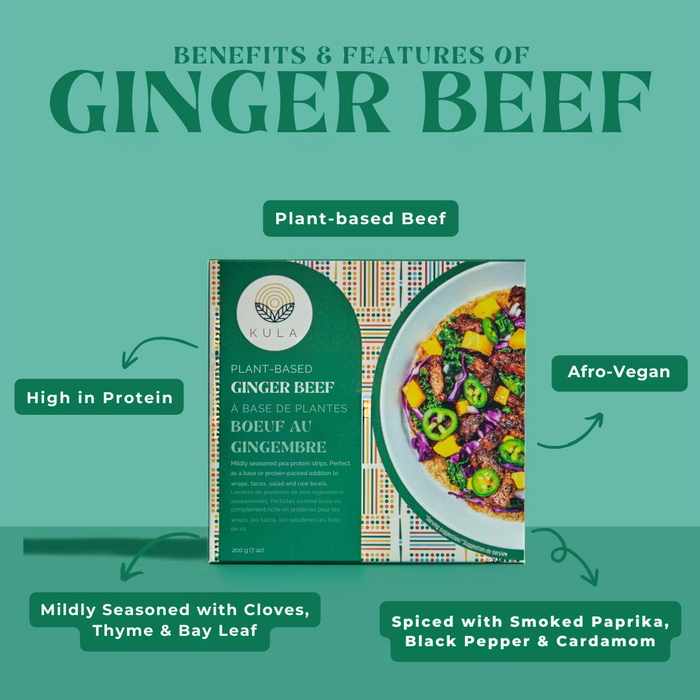Everything About Healthy And Balanced Food: Advantages of Embracing Plant Based Alternatives
The discussion bordering plant-based diet regimens has acquired considerable focus over the last few years. Many people are exploring the potential wellness advantages, nutritional benefits, and ecological effects connected with these dietary selections. As people end up being more familiar with their food's impact on well-being and sustainability, inquiries develop regarding the usefulness of adopting such a lifestyle. What particular modifications can one expect, and just how might these options reshape not just personal wellness however additionally the world's future?
Recognizing Plant-Based Diet Plans
Although many individuals link plant-based diet plans generally with vegetarianism or veganism, these diets can encompass a vast array of eating patterns that prioritize whole, minimally processed plant foods. Such diets typically include fruits, vegetables, entire grains, beans, nuts, and seeds, while limiting or getting rid of animal items. This flexibility enables people to tailor their nutritional options according to personal preferences and dietary needs. Some might embrace a primarily plant-based diet plan while still periodically consuming meat or dairy, typically referred to as a flexitarian strategy. The emphasis continues to be on including more plant foods, which can bring about a diverse array of tastes and meals. Understanding these different analyses of plant-based consuming is necessary for appreciating its access and appeal in contemporary food society.
Health Benefits of Plant-Based Foods
The wellness advantages of plant-based foods are substantial, supplying a nutrient density advantage that sustains general health. Research study shows that these foods can boost heart health and play an essential function in reliable weight monitoring. By incorporating extra plant-based choices, individuals might boost their dietary selections and advertise long-lasting health and wellness.
Nutrient Density Benefit
Nutrient density plays a necessary function in the health advantages of plant-based foods, making them a compelling option for those seeking a well balanced diet. Plant-based foods, such as fruits, veggies, legumes, nuts, and whole grains, are commonly abundant in necessary vitamins, minerals, and antioxidants while being lower in calories. This high nutrient thickness enables individuals to take in less calories while still satisfying their dietary needs. Furthermore, these foods are packed with dietary fiber, advertising digestion wellness and helping in weight monitoring. By including nutrient-dense plant-based alternatives, consumers can improve their total health, sustain their immune systems, and lower the risk of persistent diseases. Eventually, the nutrient density of plant-based foods underscores their importance in a health-conscious way of living.
Heart Health And Wellness Renovation

Weight Administration Assistance
Along with promoting heart health, a plant-based diet regimen can substantially aid in weight management. This nutritional method stresses whole foods such as fruits, vegetables, beans, nuts, and entire grains, which are normally lower in calories and higher in fiber contrasted to animal-based products. The high fiber web content helps increase satiety, lowering total calorie intake. Moreover, plant-based diet regimens are often rich in crucial nutrients while reduced in unhealthy fats, making it easier to keep a healthy weight. BBQ Sauces. Study shows that individuals that take on a plant-based way of life tend to have reduced body mass indexes (BMIs) and experience more effective weight reduction compared to those who consume meat-heavy diet plans. As a result, embracing plant-based choices is a tactical choice for effective weight administration
Nutritional Worth of Plant-Based Ingredients
Plant-based active ingredients are abundant in vital nutrients, providing a varied range of vitamins, minerals, and anti-oxidants that add to total health. A contrast of protein sources reveals that while pet items are often seen as premium, lots of plant-based choices offer that site appropriate healthy protein and other helpful substances. Comprehending the nutritional value of these active ingredients can aid individuals make informed dietary selections.
Crucial Nutrients in Plants
Nutrient-rich components discovered in plants use a diverse variety of necessary vitamins and minerals that contribute significantly to total health. These active ingredients are rich in vitamins A, C, and K, which sustain immune feature, vision, and blood clot, specifically. Furthermore, plants offer vital minerals such as magnesium, calcium, and potassium, essential for heart health and wellness, muscle function, and bone stamina. The visibility of fiber in plant-based foods help food digestion and advertises a healthy intestine microbiome. Anti-oxidants, found abundantly in fruits and veggies, aid battle oxidative stress and anxiety and lower swelling. Several plant foods are low in calories yet high in nutrients, making them an outstanding choice for those looking for to keep a healthy and balanced weight while guaranteeing excellent nutrient consumption.

Comparing Protein Sources
Protein resources vary substantially in their nutritional profiles, with plant-based ingredients providing special advantages. Unlike animal proteins, which often consist of hydrogenated fats and cholesterol, plant healthy proteins tend to be lower in these unhealthy elements. Legumes, nuts, seeds, and entire grains are rich in necessary amino acids, fiber, vitamins, and minerals. As an example, lentils provide high protein content along with considerable iron and folate, while quinoa is a full protein, providing all nine necessary amino acids. Furthermore, plant-based proteins are often accompanied by antioxidants and phytochemicals that sustain overall wellness. The change to plant-based protein resources not only enhances dietary consumption yet additionally straightens with sustainable nutritional practices, her response lowering environmental influence and advertising lasting wellness advantages.
Ecological Effect of Plant-Based Consuming
As recognition of climate modification expands, several individuals are exploring lasting nutritional options that can significantly decrease their ecological impact. Plant-based eating has arised as a significant contributor to decreasing greenhouse gas exhausts, which are mostly linked with animals manufacturing. The growing of fruits, vegetables, grains, and vegetables generally requires fewer sources, such as water and land, compared to animal farming. Furthermore, plant-based diets can result in lowered deforestation, as much less land is required for grazing livestock or expanding pet feed. By shifting towards plant-based alternatives, customers can support biodiversity and promote much healthier ecosystems. Overall, accepting plant-based eating not only benefits personal wellness yet also represents an important action toward environmental sustainability and conservation initiatives.
Conquering Common Misconceptions
While many individuals acknowledge the benefits of a plant-based diet regimen, several misconceptions usually discourage them from totally welcoming this way of living. A common idea is that plant-based diet plans do not have sufficient protein; nevertheless, various plant sources, such as beans, nuts, and tofu, offer enough healthy protein. Additionally, some assume that this diet is pricey, when in reality, staples like beans, rice, and seasonal vegetables can be rather cost effective. Another mistaken belief is that plant-based consuming is overly restrictive, whereas it actually provides a diverse selection of flavors and foods. Several fret that a plant-based diet may lead to shortages, yet with proper planning, people can obtain all needed nutrients, including minerals and vitamins, while delighting in a vast range of tasty dishes. Broad Tips for Transitioning to a Plant-Based Way of life
Making the change to a plant-based lifestyle can be an enhancing experience, though it commonly requires some advice to navigate the preliminary adjustments. Initially, people are encouraged to begin progressively, including even more fruits, vegetables, beans, and entire grains into their meals while minimizing meat and dairy consumption. Dish preparation is important; preparing a weekly menu can assist relieve the change and prevent final unhealthy options. Exploring new recipes and cooking techniques can likewise check out here boost the experience and keep enjoyment concerning plant-based consuming. Additionally, joining support teams or neighborhoods can give motivation and share beneficial pointers. Ultimately, staying notified concerning nutrition guarantees well balanced dishes, avoiding shortages while cultivating a healthy, rewarding plant-based way of living.
Delicious Plant-Based Meal Ideas
Checking out delicious plant-based dish ideas can influence individuals to accept a more healthy diet regimen. One preferred option is a hearty quinoa salad, featuring cherry tomatoes, cucumber, and a tangy lemon-tahini dressing. One more favorite is a mouthwatering lentil stew, packed with carrots, celery, and aromatic natural herbs, excellent for a calming supper. For morning meal, over night oats made with almond milk, chia seeds, and topped with fresh berries provide a nourishing beginning to the day. Additionally, a vibrant veggie stir-fry with tofu and a variety of vibrant veggies can be a quick yet satisfying dish. Creamy avocado toast on whole-grain bread, sprayed with seeds and seasonings, supplies a simple yet delicious treat. These meals display the selection and richness of plant-based consuming.

Frequently Asked Inquiries
Can a Plant-Based Diet Supply Enough Healthy Protein?
The inquiry of whether a plant-based diet plan can offer adequate protein is usual. Numerous sources, including legumes, nuts, seeds, and entire grains, can satisfy protein requires effectively, sustaining a balanced and nourishing diet regimen for individuals.
Are Plant-Based Diet Regimens Suitable for Kid?
The suitability of plant-based diet plans for kids relies on careful planning. Adequate nutrients have to be guaranteed, consisting of vitamins, minerals, and healthy proteins. With appropriate guidance, such diet regimens can sustain healthy and balanced development and development in children.
Just how Do I Dine Out on a Plant-Based Diet plan?
Dining out on a plant-based diet plan involves seeking restaurants with diverse menus, requesting for modifications, and exploring vegan-friendly options. Preparation in advance and interacting dietary choices can enhance the dining experience while maintaining nutritional choices.
What Are Common Allergens in Plant-Based Foods?
Common allergens in plant-based foods include soy, gluten, nuts, and seeds - Plant Based Chicken. Individuals following a plant-based diet regimen needs to recognize these allergens and review tags meticulously to stay clear of unfavorable reactions and ensure secure usage
Can Plant-Based Diets Aid With Weight Loss?
Research study shows that embracing a plant-based diet plan might facilitate weight management as a result of its generally reduced calorie thickness and higher fiber web content. This mix can enhance satiety, assisting individuals manage their calorie intake effectively. Many people connect plant-based diet regimens mainly with vegetarianism or veganism, these diet regimens can incorporate a large array of consuming patterns that prioritize entire, minimally processed plant foods. Nutrient thickness plays a necessary function in the health and wellness advantages of plant-based foods, making them a compelling selection for those seeking a well balanced diet plan. Plant-based diets have actually been revealed to markedly improve heart health, as they typically consist of aspects that sustain cardio function. In enhancement to promoting heart wellness, a plant-based diet can significantly aid in weight management. An usual idea is that plant-based diets do not have enough healthy protein; nevertheless, countless plant resources, such as vegetables, nuts, and tofu, give adequate healthy protein.
 Marques Houston Then & Now!
Marques Houston Then & Now! Gia Lopez Then & Now!
Gia Lopez Then & Now! Andrew McCarthy Then & Now!
Andrew McCarthy Then & Now! Bill Murray Then & Now!
Bill Murray Then & Now! Dawn Wells Then & Now!
Dawn Wells Then & Now!